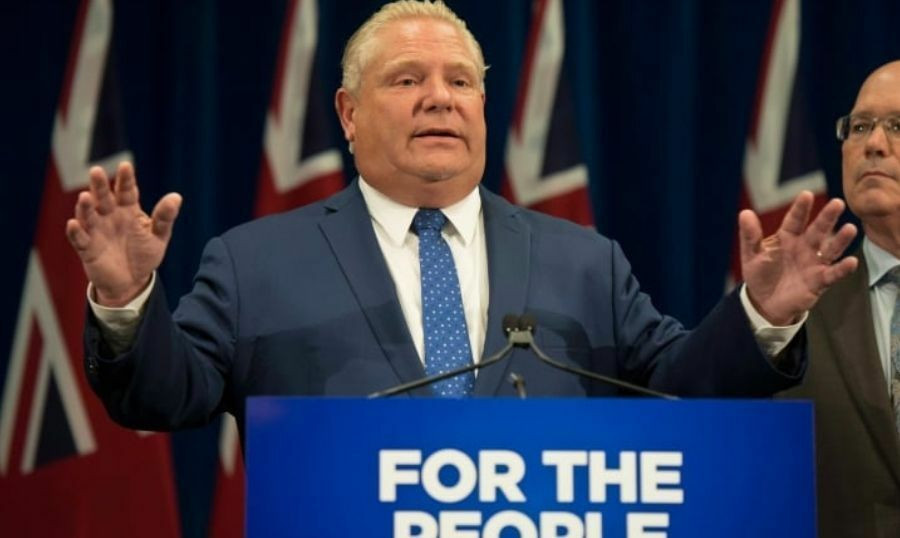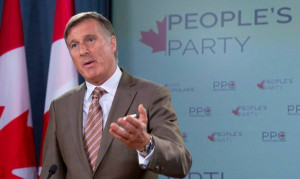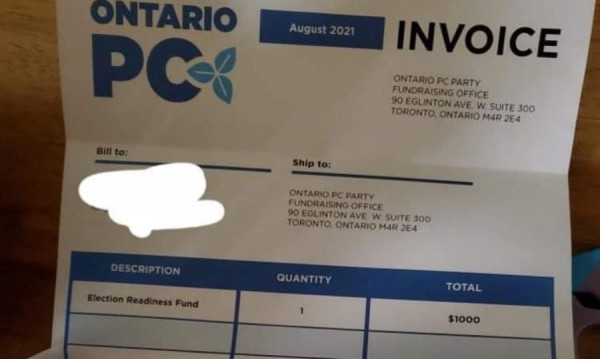Coe is my provincial representative, just recently re-elected to represent Whitby in the Ontario legislature at Queen’s Park.
Coe is also the deputy whip of the Ontario Progressive Conservative Party’s parliamentary caucus. In this role, he assists with banging on every PC MPP’s door when it’s time for an important vote, to make sure government members are on the floor of the legislature in time to cast a ballot in favour of whatever bill Premier Doug Ford wants passed.
Many votes on bills introduced by the PC government during their term of office will be “whipped,” which means Coe will have to go out and do his job so the trained seals on the government’s backbenches are in place to bark on command for Ford and his Cabinet.
But Bill 5, at least in its reintroduction, wasn’t supposed to be like that.
Ford said, before the legislature began sitting, that each member of the PC caucus was free to vote their conscience and were thereby released from the obligation of voting with the government.
However, every single PC MPP voted with the government as the bill passed first reading on Wednesday.
- This is an important development, because the final vote on Bill 5 will be unique in the history of Ontario. It will be the first time that MPPs will be asked to support the invocation of section 33 of the Canadian Charter of Rights and Freedoms, commonly referred to as the “notwithstanding clause.”
This clause is our Constitution’s “break in case of emergency” failsafe, to be used under only the direst of circumstances, when a government (be it provincial or federal) can override the protections of our fundamental freedoms as Canadians to enact a law over the objections of the judiciary.
It’s a shocking development that such a vote appears to have been “whipped” after all. It says nothing good about this government’s care and concern about its responsibilities, or about the Premier’s word on anything of substance.
To be clear, this section of the Charter has never been invoked in Ontario. The federal government has never used it, and the provincial government has never used it. The challenge before us today, as laid out by the Premier of this province this week, is to keep it that way.
As most of you know, Ford’s little brother Rob was the Mayor of Toronto for four years. During that time, Doug was a city councillor who also ended up running for mayor in the middle of the last municipal election, when Rob was diagnosed with the cancer that would eventually take his life. During his time on City Council, Doug worked with Rob as they attempted to sharpen divisions between the inner suburbs of the city and the latte-sipping (in their minds) downtown dweebs that were beneath their concerns
Doug badly wanted to be mayor and was thwarted in his ambition in 2014. He was primed to run again in 2018 when the provincial PCs tossed their leader Patrick Brown earlier this year and opted to have a leadership convention, mere weeks before the provincial election was slated to begin. Ford shifted gears, ran for the leadership and won a squeaker over Christine Elliott. He then pivoted, led his party through the springtime campaign and, in June of this year, won a majority government.
Now firmly entrenched as Ontario Premier, Ford was unable to let the downtown dweebs peacefully sip their lattes at Toronto City Hall. He decided to eliminate as many of them as possible with Bill 5 which chopped the number of councillors to be elected in the 2018 municipal vote from 47 to 25, after the election campaign was already underway and without a moment of consultation or a smidgeon of warning to anyone in the province. He didn’t mention it at all in the provincial campaign and therefore had no mandate to do what he did with Bill 5.
The confusion and anger caused by Ford’s move led a group of citizens, candidates and organizations to challenge the law in court. Justice Edward Belobaba ruled that the government had violated the section 2 freedom of expression provision of the Charter, by changing the rules of an election after it had already begun – an unfairness that negatively impacted both candidates and voters. He also said the infringements on people’s right to free speech could only be understood through the lens of a violation of the basic democratic principle of the right to vote (which is also enshrined in the Charter in section 3).
Within hours of the ruling, Ford made the shocking announcement that his government would invoke the notwithstanding clause of the Charter, leading us to where we are now.
Make no mistake – the bill is Ford’s, not the poor fools in his cabinet who are carrying his Bill 5 water at Queen’s Park.
This is all about the Premier using his newly-claimed power to stick a green plastic coffee stir stick into the eyes of the left-leaning downtown councillors he despises. There is no higher calling for his actions other than petty revenge.
Which leads me back to Lorne Coe. Despite the Premier’s actions, he has not yet invoked the notwithstanding clause. A final vote of the legislature is required first. No NDP or Liberal MPP will vote for this nonsense on its final reading, so that leaves Conservative backbenchers – people like Coe – as the last line of defence against this heinously inappropriate use of section 33 of the Charter.
These are the people who must be persuaded by the time MPPs vote on the third and final reading of Bill 5 to push their party and this province back from the brink and onto firmer legal ground.
Here are a few key observations that help to predict what comes next:
1. Justice Belobaba didn’t say the government lacked the power to change the composition of Toronto City Council. He said the timing of the move (i.e. after the election campaign period had already begun) is a problem. Proposed legislation written exactly like Bill 5 but substituting 2022 for 2018 can be introduced the day after next month’s municipal vote and be passed without controversy, fully within the province’s powers.
2. What is the blooming rush to pass this law before next month’s vote, at the cost of trampling the rights of Ontarians, when a perfectly legal and unobtrusive option is easily available? Until this question is satisfactorily answered, government members fail to uphold their solemn oath to us to “perform the duties of Member [of Provincial Parliament] honestly and justly in conformity with the Constitution of Canada.”
3. The reintroduced Bill 5 is almost certain to be challenged in court the day it is proclaimed into law, on the basis that it violates section 3 of the Charter, which protects the right to vote. That section is not subject to the notwithstanding clause. It can also be argued that using the notwithstanding clause is not valid in this case because the start of the campaign period happened before the law was passed and is not something that is going to happen in the future. The Supreme Court of Canada ruled in the Ford v. Quebec (Attorney General) case in 1988 that the use of the clause needs to be “prospective” and not “retrospective.” These realities insert still more complexity and confusion into the current situation. For example, what happens if Bill 5 becomes law but is then later overturned by a judge based on the 1988 Supreme Court ruling? Would the judge be forced to nullify the vote and order a new election? The possible outcomes are more complex than final-week scenarios for the NFL playoffs.
4. If one disagrees with Justice Belobaba’s ruling, the proper course is to file an appeal. There are those who believe that an appeal could succeed on its merits. Nuking the political groundwork with the invocation of section 33 is wildly inappropriate when other, better options exist. It makes even less sense when the government is also going to simultaneously appeal.
5. It can be argued that any lawyer in the PC caucus that votes for implementing Bill 5 using the notwithstanding clause is violating the oath they took when they joined the bar of the provincial Law Society. Senior ministers who fit the bill include Attorney-General Caroline Mulroney and Health Minister Christine Elliott. I would not be surprised to see them all subjected to multiple disciplinary complaints from fellow lawyers disgusted by their actions, adding yet another wrinkle to the ongoing drama.
Given these realities, every Ontarian should get on the case of every PC MPP to encourage them to vote on third reading against implementation of Bill 5 using the notwithstanding clause.
This situation isn’t about partisan politics, it’s about preventing government overreach that tramples our rights for trivial or inconsequential reasons. You don’t have to agree with Justice Belobaba’s ruling to decide Ford’s response is unconscionable.
Remember – the government can get its way any day it chooses by passing a law that changes the composition of Toronto City Council for the 2022 election. It simply chooses not to do so and prefers to step on you, so that Doug Ford can turf a handful of downtown progressive councillors from office. (In the legislature during the first reading of Bill 5, Ford accused the Leader of the Opposition, Andrea Horwath, of being "here to protect her crony buddies Mike Layton, Gord Perks", who are two of the aforementioned downtown dweebs).
As I wrote to Coe in my letter, there is no political, social or moral justification for feeding one person’s uncontrollable ego and desire for petty personal vengeance in this way.
Our Constitution is not to be used as an enabler for vendettas. It’s the guiding document of the land and needs to be invoked respectfully and in the service of all Canadians.
This move by the Ontario government is the vilest abuse of power in the history of our province.
All PC MPPs have the option to say no, in a free vote on the reintroduction of Bill 5.
We are all watching. Do the right thing.
Greg Frankson is a public speaker, community activist and award-winning literary artist who lives in Whitby, Ontario. He is also an Ontario Certified Teacher.










